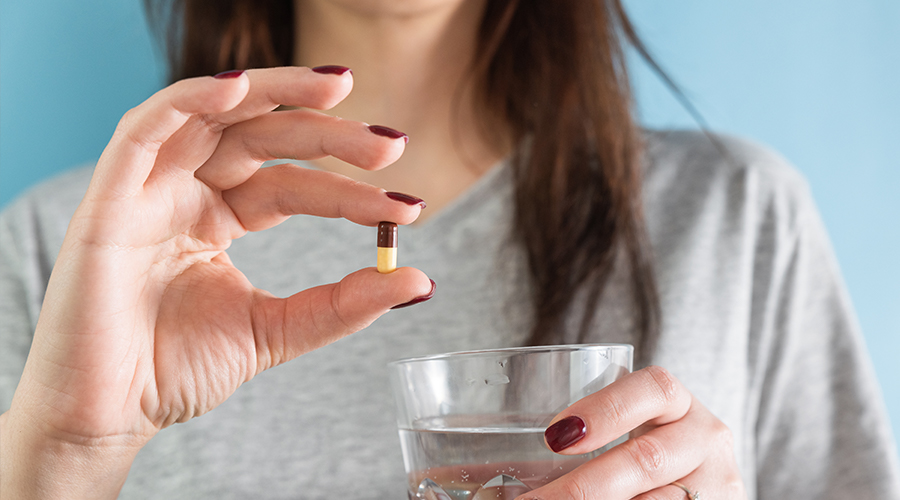Inflammation is a natural and beneficial response of the body. It is a response of our immune system to an injury, infection or other chemical or toxic aggression. In such a situation, our immune system sends its soldiers to repair the damaged area and/or fight potential pathogens.
However, there is a downside:
First, persistent inflammation can lead to health complications such as increased cellular aging, digestive disorders or decreased overall immunity to name a few. That's why it's important to contain it.
Secondly, it can hurt!
For these 2 reasons, anti-inflammatories become, in some cases, our best friends! Their use has become commonplace today, especially to relieve pain. While it is tempting to focus on short-term relief, what about regular use?
When anti-inflammatory drugs are taken on a regular or even daily basis, they can have various side effects on the body.
Why is this? Anti-inflammatory drugs relieve pain by blocking the production of chemicals called prostaglandins.
These chemicals play other important roles in the body, including protecting the stomach lining, regulating blood pressure and helping blood clotting. When these prostaglandins are blocked too often, the body is deprived of part of its team to maintain it. Stomach aches, ulcers, gastrointestinal bleeding and high blood pressure can occur.
Some of these side effects are mild and temporary, while others can be much more serious.

What natural alternatives to drugs are there to reduce inflammation and the pain often associated with it?
Anti-inflammatory foods
The basis! Hippocrates said "let your food be your first medicine".
Indeed, there are foods that can help reduce inflammation in the body, and therefore reduce pain.
A minimally processed, seasonal and quality food from short circuits is to be preferred in order to ensure a reasonable amount of nutrients in the food.
Fruits and vegetables rich in antioxidants such as red berries, citrus fruits, spinach and broccoli are excellent.
Foods rich in omega-3 are essential in the anti-inflammatory process. We are thinking of small oily fish (mackerel, sardines), oils rich in omega 3 such as flax, hemp or rapeseed oil. Be careful, these should not be heated and should be kept in the refrigerator for a maximum of 3 months!
Healthy fats such as those found in avocados and nuts and foods rich in fiber can also help reduce inflammation.
Not to mention all the condiments such as turmeric, garlic, nettle powder, ginger, thyme...
It can be complicated to change your diet. Do not hesitate to call upon a nutritionist or a naturopath to accompany you on this path.
Magnetic therapy
Subscriber of our newsletter, you know magnetotherapy 😊, but did you know that it can help you in such cases?
Small in diameter, therapeutic magnets are powerful and effective: they can be placed on any area of the body, right on the skin.
They help reduce inflammation by promoting blood and lymphatic circulation, as well as intra-cellular exchanges. This alternative therapy is often used to relieve chronic pain, such as muscle, joint or rheumatic pain.
Many testimonials report a reduction in pain and an improvement in quality of life thanks to this method.
Other techniques can also help you reduce the use of anti-inflammatory drugs
Regular exercise tailored to one's physical situation, such as walking, swimming and yoga, can help reduce inflammation by increasing blood flow and boosting the immune system.
Quality sleep is also important in reducing inflammation, as it is during this restful time that the body cleanses and regenerates itself.
Relaxation techniques, such as meditation and deep breathing, can also help reduce stress, which is a major contributor to chronic inflammation.
Finally, acupuncture and chiropractic can also be considered to support the body.
Things to remember:
- Inflammation is part of our immune system.
- Its objective is to repair a traumatized area.
- Chronic inflammation must be contained because it is harmful in the long term.
- Anti-inflammatory drugs provide short-term relief, but have side effects if taken regularly.
- Diet, magnetic therapy and adapted physical activity can help relieve inflammation and associated pain and reduce the use of anti-inflammatory drugs.
